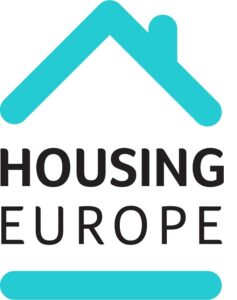Loans to co-finance affordable housing – Council of Europe Development Bank

The Council of Europe Development Bank is a multilateral development bank with an exclusively social mandate. It was founded in 1956 by eight member States of the Council of Europe to provide support for refugees and displaced persons in Europe.
Description
The Bank has since expanded to include 42 countries which are its shareholders and are eligible to borrow from it.
The mission of CEB has also expanded to encompass supporting the implementation of socially oriented investment projects which promote:
- Inclusive growth: working to guarantee access to economic opportunities, ensuring a prosperous future for all
- Support for vulnerable groups: helping to integrate the most vulnerable citizens and nurture a more diverse society
- Environmental sustainability: supporting a liveable society that promotes environmental sustainability and mitigates or adapts to climate change.
Actors involved
- Council of Europe Development Bank
Scale
EU
More information
CEB is not funded by its member States, rather its funding is raised by borrowing on international capital markets. The bank’s credit rating is strong and stable at “AA+”, reflecting access to less expensive financing on capital markets.[1] It lends to member States, co-financing eligible social projects. Housing is an important part of the bond issuance programme of CEB. The proceeds of its Social Inclusion Bond, issued since April 2017, are used to finance social housing, education and vocational training, as well as job creation and preservation, in micro, small and medium-sized enterprises. To date, 33 per cent of all proceeds, or EUR 495 million, have been allocated to housing projects. This has led to more than 10,600 housing units being built or renovated out of Social Inclusion Bond proceeds alone.[2]
CEB co-finances affordable housing and regularly partners with national and international organizations who contribute any remaining finance required. For instance, it is a partner in an alliance between public investment banks and social housing providers in France (Alliance européenne pour un logement sociale durable et inclusif), which was formed in 2020 to simplify access to funds, coordinate strategic investment and expand the volume of investments in social housing. This new partnership involves the French Banque des Territoires, CEB, the European Investment Bank, and not-for-profit housing providers. They combine their expertise to access European funding and make long-term investments in public social infrastructure. Additional loans will accelerate social housing construction in economically challenged areas, providing more investment to house people in precarious situations, often including support and health services[3].
Another example of recent CEB-supported activities comes from the Republic of Moldova.[4] CEB financing is being used to improve and increase the housing stock, with beneficiaries including young families; individuals or families in which at least one of its members works in a budgetary institution or works in the field of public services; families with at least three minor children; or persons with severe disabilities. Phase 1 (2008-2011) of the project comprised of the construction of 240 apartment units in four buildings. Phase II (2013-2021), which has an approved budget of EUR 13.4 million, is nearly completed. The total cost of the project is EUR 20.4 million, of which the CEB participation is 65 per cent of the total cost. CEB provides a loan for up to 20 years, including a grace period of 5 years. The contribution of the Republic of Moldova, realized through local authorities, is 35 per cent and consists of in-kind and financial contribution. The project will complete the construction of 667 social housing facilities in total.
[1] Fitch Ratings, “Fitch Revises Council of Europe Development Bank’s Outlook to Stable; Affirms at ‘AA+’”, 29 July 2020.
[2] Rolf Wenzel, “What role for international financial institutions in the housing sector?”, Housing Europe, 30 November 2020. Available at https://www.housingeurope.eu/blog-1479/what-role-for-international-financial-institutions-in-the-housing-sector.
[3] L’Union sociale pour l’habitat, “Une alliance européenne pour un logement social durable et inclusive” (A European alliance for sustainable and inclusive social housing), 3 February 2021. Available at https://union-habitat-bruxelles.eu/une-alliance-europeenne-pour-un-logement-social-durable-et-inclusif.
[4] Information available at https://coebank.org/en/donors-and-trust-funds/beneficiaries-donor-funds/provision-social-housing-vulnerable-and-low-income-population-phase-2/ and
“Practice of the Republic of Moldova on the implementation of programs for the construction of affordable housing” was presented at the UNECE Subregional Workshop on Housing: Policies for housing affordability in Russia and CIS. Available at https://unece.org/hlm/documents/2021/03/agendas/draft-programme-cis-subregional-workshop-housing
https://coebank.org/en/project-financing/sectors/social-housing/

An initiative of:


